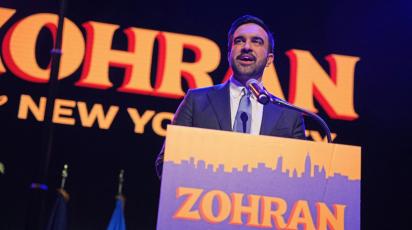Nepal talks postponed amid wrangling

"The top leaders of the seven parties decided to postpone today's talks saying that they needed more time to reach consensus on key political issues," Pradeep Gyawali, minister for tourism and a government negotiator, told AFP.
The two sides have been struggling to overcome differences on the role of the monarchy, what to do with rebel weapons and an interim constitution that would allow the rebels to join an interim government.
"We could not reach any conclusions," rebel number-two Baburam Bhatterai told AFP, but added that the peace talks were in no danger of foundering.
"Sunday's failure to reach any decision does not mean that talks are heading backwards," the rebel leader said.
The Maoists have said they will not return to war and Bhatterai vowed Sunday they would stay the course.
"Talks were positive and we will continue until we reach an agreement," he said.
Government negotiator Gyawali said that Prime Minister Girija Prasad Koirala would fix a new date for talks after consulting with other political leaders.
Sunday's postponement was understandable because of the seriousness of the issues at stake, a political analyst said.
"It is natural that it is taking time because the issues they are dealing with are very complicated and sensitive," said Kapil Shrestha, a political science professor from Nepal's Tribhuvan University.
In talks last week, the two sides agreed to hold elections by mid-2007 for a body that would rewrite the constitution and decide on whether the monarchy can stay.
But the main stumbling block appears to be what should become of the Maoist army.
The main disputes are over disarming the rebel army and the future of the monarchy in the impoverished Himalayan nation.
Sunday's meeting is the fourth in a week between the two leaders and both sides had said they had been "very close" to a breakthrough at the end of each round of previous talks.
"The dialogue is at a crucial stage but is positively moving ahead," said Ram Chandra Poudel, a senior leader of Koirala's Nepali Congress party, the biggest group in the ruling seven-party alliance.
The rebels, who want the monarchy to be abolished, were more cautious.
"We are close to a deal. But there are ups and downs. The situation is still fluid," Maoist negotiator Dev Gurung said, as middle-level representatives from the two sides met to find a way out of the dispute.
The Maoists have said they are prepared to keep their 35,000-strong People's Liberation Army and weapons in camps supervised by the United Nations, but the multi-party government wants them to disarm.
The rebels, who control large swathes of Nepal's countryside, also want to see Nepal's 90,000-strong army confined to barracks in the run-up to the elections.
A ceasefire has been in effect for the past five months between the government and the rebels since massive street protests forced King Gyanendra to give up 14 months of absolute rule and restore parliament.







 For all latest news, follow The Daily Star's Google News channel.
For all latest news, follow The Daily Star's Google News channel.
Comments